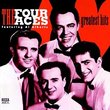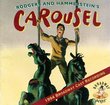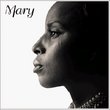| All Artists: Diana Ross & Supremes, Temptations Title: Supremes Join the Temptations Members Wishing: 3 Total Copies: 0 Label: Motown Release Date: 7/1/1991 Genres: Pop, R&B, Rock Styles: Oldies, Motown, Soul Number of Discs: 1 SwapaCD Credits: 1 UPCs: 037463513945, 050109513949, 737463513920 |
Search - Diana Ross & Supremes, Temptations :: Supremes Join the Temptations
 | Diana Ross & Supremes, Temptations Supremes Join the Temptations Genres: Pop, R&B, Rock
|
Larger Image |
CD DetailsSimilarly Requested CDs
|
CD ReviewsTwo Super Soul Groups United On Record Ian Phillips | Bolton, Lancashire, UK | 06/16/2006 (5 out of 5 stars) "It was in the heart of downtown Detroit, early
1959, a male vocal trio calling themselves The Primes was formed. The Primes comprised of the vocal talents of Eddie Kendricks, Paul Williams and Kell Osborne. The Primes then set about about looking for a "sister" group to compliment their act. That "sister" group was formed by Florence Ballard who recruited her friends Mary Wilson and Betty Mcglown and were dubbed The Primettes. At the recommendation of Paul Williams, a 15 year old Diana Ross was added to the group. The Primes and The primettes landed themselves a record deal with the local Lu Pine Records label in mid 1959. There, The Primes and The Primettes cut numerous tracks but the labels boss was eventually arrested on fraud charges and the company closed its doors. This left the two distraught groups without a record deal. But their hopes and dreams were certainly not dented and they intensely percevered. The two groups went their own separate ways though both acts ended up signing to Berry Gordy's pioneering black music record label, Tamla Motown Records. The Primes changed their names accordingly to the Elgins and then again permanentely to The Temptations. The Temptations regular line up soon became Melvin Franklin, Paul Williams, Otis Williams and David Ruffin. Meanwhile, The Primettes switched their names to The Supremes and were reduced to a trio with the members now being Diana Ross, now The Supremes permanent lead singer, Florence Ballard (founder of the group) and Mary Wilson. By the mid 1960's The Supremes and The Temptations had become Motowns biggest selling International stars. They had certainly had come a long way from singing together in seedy downtown nightclubs around Detroit. It seemed inevitable that The Supremes and The Temptations would one day be re-united and in late 1968 they indeed were for a series of big selling studio albums and top rated television specials. At this stage, Dennis Edwards had taken over as lead vocalist following the disrupt dismissal of David Ruffin earlier that year. The Supremes founder Florence Ballard had alos been fired in mid 1967 being replaced by Cindy Birdsong, a former backing vocalist with Patti Labelle and the Bluebelles. The group had also been re-christened as Diana Ross AND the Supremes. This was an obvious marketing ploy on the part of Motown as they were now grooming the solo career of Diana Ross. Diana Ross and the Supremes and the Temptations proved a phenomenal and dynamic success. It was also a suitably fitting nod to both groups past. Of the several albums they cut together, Diana Ross And The Supremes Join The Temptations (1968) stands today as their strongest recording project. The ultimate landmark of Diana Ross And The Supremes Join The Temptations (1968) would be the exhilirating, I'm Gonna Make You Love Me, produced by two of Motowns hottest new talents, Frank Wilson and Nickolas Ashford. Injecting the sweet, lush harmonies of Diana Ross with Eddie Kendricks quite sensual falsetto, proved a winning combination. An air of sexual chemistry sizzles when their two voicesw are put togther. I'm Gonna Make You Love Me smashed its way on to the American charts, peaking at No.2 whilst hitting No.3 on the U.K Charts. What had actually been originally scheduled as the premier single of the album was the swinging, Try It Baby. Whilst being an excellent recording, the jazz flavoured arrangements intertwined with a traditionla black Rhythm and Blues feel was (sensibly) considered not catchy enough to cross over from the black music charts to the mainstream Pop charts. Try It Baby opens with a striking vocal interlude from teh deep, husky voiced Melvin Franklin which is set against a pattering beat. The tempo then swiftly shifts direction when Diana Ross' soft, exuberant delivery kicks in after Melvin Franklins brief but effective vocal interlude. Ross is in really great voice as always, kicking off her heels and really getting on down with Melvin Franklin and Dennis Edwards, though had already proved herself a highly adept and versatile vocalist. I'll Try Something New was lifted as the projects second single. It was a neatly balanced ballad with lead vocal duties alternating between Diana Ross and Eddie Kendricks. The glorious musical arrangements are complimented by their divine performances. Despite the quality of the ballad, I'll Try Something New surprisingly failed to sky rocket up the charts in the way I'm Gonna Make You Love Me had done, becoming only a moderate seller. Their upbeat, energetic cover of Smokey Robinson and the Miracles, I Second That Emotion, exceeds the original as their are such a wonderful range of harmonies from both groups though is mainly alternated between Diana Ross (of course) and the smooth vocals of Eddie kendricks. I Second That Emotion was lifted as a British single, where it flew straight into the Top 20 Charts, landing at No.18. It is quite strange hearing Diana Ross singing Ashford and Simpsons Ain't No Mountain High Enough in a completely different arrangement than that of the more famous version she took to the top of teh charts as a solo artist in 1970. It's a total contrast to Ross' blockbuster solo classic and more of a direct re-working of the compelling version that Marvin Gaye and Tammi Terrell took high into the charts earlier that year. The splitting of lead vocal duties between Diana Ross' soft, sensual sound to the explosive, rocketing volume of Dennis Edwards credible, far grittier style, surprisingly works impeccably well. Their cover of This Guy's in Love With You showed just how versatile and diverse The Supremes and the Temptations were and proved that their talents strectched much further than beyond the grooves of their latest hit singles. Again, this is another track that really brings out the intricate, natural qualities in Diana Ross' unique and very distinct voice. Ross effortlessly glides along the sweeping orchestrations, her voice brimming tenderly with emotion against the raw, earthy tone of Melvin Franklin. Funky Broadway is an exciting tour de force between Dennis Edwards, who sings on the first verse and Diana Ross who picks up on the second verse before uniting with Dennis Edwards to sing the chrous against the great backing vocals from both groups. Those jamming, totally infectious musical arrangements are enhanced further by the firm, assertive two leads from Ross and Edwards. More of a routine effort was the formulaic cover of the Motown classic, Sweet Inspiration which still proves to be contagious regardless! The Temptations often gets down to some serious group harmonising but as always was the case with The supremes, lead singer Diana Ross remains firmly in the spotlight with Mary Wilson and Cindy Birdsong backing vocals merely used as obligation - or thats how it certainly seemed! The two groups carry off their pleasant version of Stevie Wonders A Place In The Sun withe ease and style whilst even better is their superb cover of Smokey Robinsons' Then, with Ross' vocal delivery in particular being mesmerisingly divine, sounding simply sensational when pitched against the aggressive delivery of Dennis Edwards. The albums grand finale is a daring but riviting cover of Elvis Presleys, The Impossible Dream, which they pull off to startling effect. The dramatic, complex Motown orchestrations are coated by two super fine performances from Diana Ross and Dennis Edwards. The track really ignites and proved to be the most adventurous and diverse recording on the album. A very succesful experimnent that is carried off with style and finesse. Diana Ross And The Supremes Join The Temptations (1968) is an enjoyable album from start to finish and is not marred by any filler. It is an essential album for any lover of soul music. Diana Ross And The Supremes Join The Temptations (1968) bounced its way to No.2 on the U.S BillBoard Album Charts whilst racing all the way into pole position on the U.K Album Charts. Ian Phillips " |

 Track Listings (11) - Disc #1
Track Listings (11) - Disc #1








